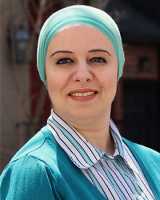Author Interviews, Brigham & Women's - Harvard, Gender Differences, Memory, Menopause / 12.11.2016
Menopause Has Variable Effect on Memory Decline in Women
MedicalResearch.com Interview with:
Jill M. Goldstein, Ph.D.
Director of Research for the Connors Center for Women's Health and Gender Biology
Brigham and Women's Hospital and
Professor of Psychiatry and Medicine at Harvard Medical School
MedicalResearch.com: What is the background for this study?
Response: Maintaining intact memory function as we age is one of the primary public health challenges of our time. In fact, women are at almost twice the risk for Alzheimer's disease and it is not only because women live longer. Thus, it is incumbent upon us to understand this sex difference and incorporate the knowledge into the development of sex-dependent therapeutics.
Our study focused on beginning this investigation by understanding how memory circuitry and memory function change over the menopausal transition, when we believe that sex differences in memory aging emerge. By understanding healthy aging, we will better understand how the brain goes awry with age differently in men and women and who might be at highest risk for Alzheimer's disease later in life.
(more…)










